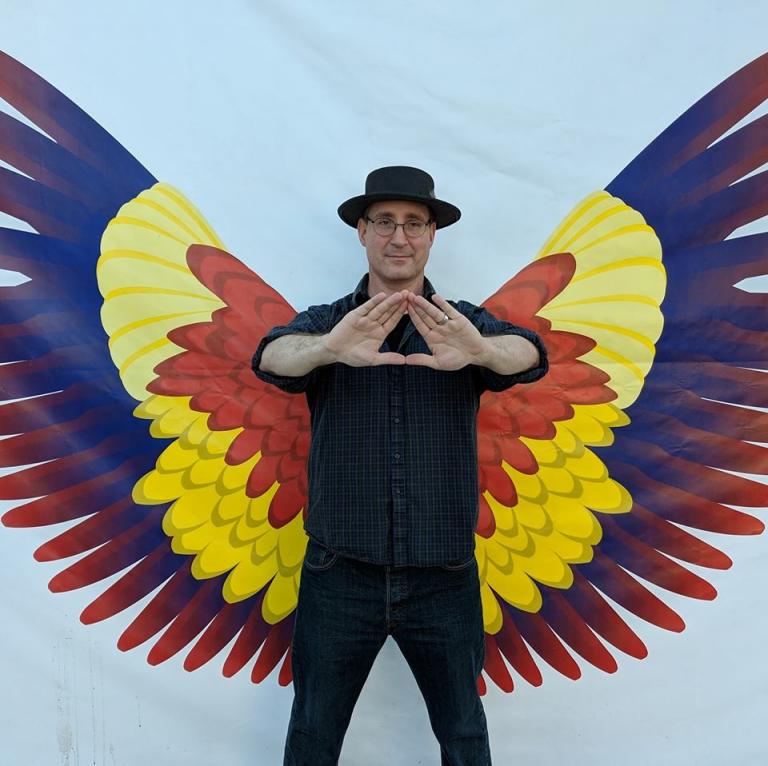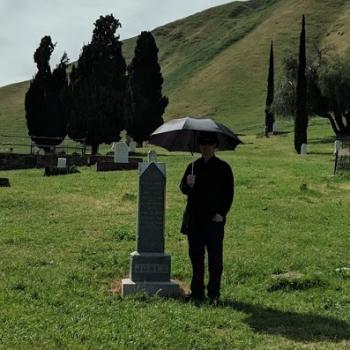It has now been eight hundred days since I last missed a day of my daily practice. And since I write about discipline and daily practice regularly, and reference it in many posts, I feel it is important to report my own progress.
Over the course of days, months, and years, my practice has grown. I have allowed it to change as needed, with a careful balance of discipline and intuition.
The Tally Thus Far
The tally of my practice, as it shifts and grows, is becoming rather extensive. Still, I think there is a value both to keeping records and sharing them.
To be honest, I was not born an organized, disciplined person. Organization is a skill, and discipline is a matter of cultivation.
Once a day, for the last eight hundred days, I have performed the Lesser Banishing Ritual of the Pentagram (LBRP). I started this practice while I was in recovery from a bout of blood cancer, and have continued on.
On top of that, it has been six hundred and forty-seven days since I started spirit-cleansing exercises and six hundred and forty-four since I added some qigong-related practices. These two practices are quite active, and have doubled as straight-up exercise.
It has been three hundred and eight days since my wife and I started a new meditation regimen with a teacher. We have meditated together every day of the program, excepting one where I was too sick and we meditated separately. The exercises vary, but the practice itself remains solid and steady.

One hundred and eighty-three days ago, I added the recitation of the Emerald Tablet to the regimen. On a good day, this is associated with internal alchemy. I must admit that there are days, however, that it is just dumb recitation.
And one hundred and forty-eight days ago, I added chants to go with each physical practice. The goal, here, is to associate a chant with each of the practices, so that if and when I am too weak to stand, I will be able to rely on the chants as magical anchors.
With all those pieces, I can still complete the whole series in a quarter of an hour if I focus. Most nights, it takes maybe twice that and includes some additional sitting meditation.
E Pluribus Unum
After eight hundred days, there is an enjoyable fierceness and a momentum to my practice. Each movement, each word, each shift of my attention, now comes easily and naturally.
More than that, my mind, body, and spirit come together in each and every motion. One type of focus does not come at the expense of the others. And while this is especially pronounced during daily practice, this change bleeds over into the rest of life.
Eight hundred days of daily practice has lent weight to my intuition, but also made it less dramatic. There is less of a feeling of intuition pitted against rationality, and more of a feeling of the two working together to create excellent real-world solutions to everyday challenges.
While there is certainly a part of me that looks at all my varied training techniques and shakes its head, things just are what they are. These practices, in all their variation, harmonize together to bind and balance the disparate parts of myself into one. I try not to overthink it.
Become All You Are
Without cultivation, we spend our lives emphasizing the small parts of ourselves that others will appreciate and reward. Our sense of self depends on reinforcement from the outside.
We try to be what others want us to be. And there is a place for that. But our social identity does not have to limit who we are. Who we are at work is not who we are at a family dinner, or who we are in bed with a lover, or who we are driving in traffic. But if we can hold all of these things at once, then we can expand who we are.

We are raised to spend our lives defending our identities, our personal narratives. We believe this will protect us from “bad” things. But this is an oversimplification, and our identities are not our friends.
Once the self begins to return to wholeness, we can clearly see how we robbed ourselves of our power. And it is not until we begin that process that we can even understand what power is.
Out of Many, One
Everyday people live lives of scripted thoughts, feelings, and actions that help them fit roles in the world. And there is value in that.
Whether that role is an investment banker, a construction worker, or a priest, we commit to identities that allow us to interact with others. These performances give us social power, shaping us in relation to other people in seeming infinite webs of meaning.
We have all given away or turned off parts of ourselves in order to fit our roles, our identities. Not to put too fine a point in it, we chop off parts of who we are so that we can work together with others and fit into the cages of our lives. And we expect them to do the same.(1)
But it is our nature to be more than these scripts and automatic responses. While the social world of people seems infinite, it is only infinitely consuming.

The everyday world holds and focuses our attention on ten thousand things, and draws us away from who and what we are. When we begin to practice self-cultivation, we begin the process of bringing us back to ourselves.
No matter what we want to accomplish in life, it is necessary to start from where we are. And the first thing we can do is go out and collect the parts we have left behind.
A Simple Daily Practice: Settle the Mind
There is a secret to settling the mind. We have to stop believing that the mind’s resources are infinite. This is, of course, objectively false. Our brains are relatively small and fragile, and yet we use them like they are resources without limit.
Because we have never been taught how to harbor the mind’s resources, we are always mentally exhausted. In fact, we are so used to being drained of our mental reserves that we fear even having the internal space to actually think.
The first step of settling the mind means allowing it to build its resources. Think of the mind as a bank account, except instead of money, it holds “attention” — our ability to focus on things.
Most people walk around with a zero attention balance, mentally broke. We are already paying attention to exactly as many things as we can handle.
If any of our attention gets freed up, we immediately spend it on something else. And because we are always running at (or beyond) our limits, that “something else” is usually immediate gratification.

ProTip: While there are many options when it comes to learning meditation, sometimes it is better to go ahead and do something (anything!) right now. There is no need to start by finding a meditation class.(2) We can start where we are.
Find a quiet space, turn out the lights, and sit with yourself. If you have to do something, focus on your breath as it comes in and out. The point is not to accomplish anything, but to reduce the inputs and let your mind slow down.
I can guarantee that, at first, your mind will freak out. The internal chatter will increase! You will find ten thousand things to do! Do what you absolutely need to do, but come back to the sitting.
Usually, such a practice is hard at first. A few minutes every day, totaling an hour a week, should be enough to begin strengthening your mind.
Pursue simple sitting, but do it with all the commitment you give watching your second-favorite TV show. A full hour each week, without fail and without excuses, for twenty-three weeks, will yield results.
The Eight Hundredth Day
On a personal note, the adoption of daily practice has been a transformative experience. This run of eight hundred days is not even the first time I have made such a commitment.
In my twenties, I managed a year of training that combined martial arts and some other practices. Back in 2010, I managed four months. And for eighteen months, starting in 2014, I worked internal alchemy based on an interpretation of the Emerald Tablet.
All people have a basic need for a sense of certainty, but we are living through an era of rapid change and social dislocation. Daily practice creates a stable space, both internally and in our lives. More, it assists in developing strength, flexibility, and resilience on all levels. I cannot recommend cultivation practices highly enough.(3)
(1) More than expecting others to also constrain themselves for the sake of society, we enforce such constraints. From social cutting to jailing criminals, we rob others of their power in an endless competition of identity and power. That is just part of what it means to be human. Setting that aside and allowing others to be more whole is an act of courage, and something we cannot attempt until we have grown our own internal power.
(2) I am not against people seeking out teachers. It was definitely part of my path, eventually. But commitment is scary, and can be an excellent excuse to avoid getting started. “Starting from where we are” means approaching change with the resources we have, now, rather than waiting for the moment that we have all the resources we think we need.
(3) Now, I don’t mean to say that we should all throw away our lives and become monks and nuns. That seems excessive, unless you have a true calling in that direction.












